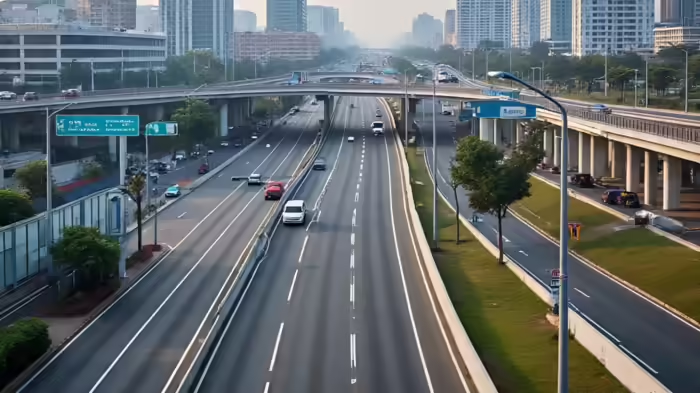
**
New Delhi | November 3, 2025
In a major step toward building a smarter and more connected capital, the Public Works Department (PWD) has officially launched the redevelopment of Mahatma Gandhi Ring Road, a 55-kilometer-long corridor encircling Delhi. The project aims to transform the existing route into a smart, green, and citizen-friendly transport network, significantly easing traffic congestion and improving air quality.
PWD Minister Parvesh Sahib Singh inaugurated the project and said, “We are not just building roads — we are building a Smart Delhi. The Ring Road will symbolize the city’s transformation into a modern, data-driven, and sustainable capital.”
Redevelopment to Be Carried Out in Six Phases
The Ring Road revamp will take place in six structured phases, covering Delhi’s northern, southern, and central stretches. The upgraded corridor will link major traffic zones, including Azadpur Flyover, Pacific Mall, Pitampura, DND Flyover, Moti Bagh, Rajouri Garden, and ISBT, among others.
Each intersection will be redesigned as a smart and citizen-friendly junction, equipped with intelligent traffic systems, better pedestrian pathways, and green landscaping.
AECOM to Lead Design and Technical Studies
Global infrastructure consulting firm AECOM India Pvt. Ltd. has been assigned the task of preparing the Detailed Project Report (DPR). The company will conduct comprehensive traffic surveys, environmental assessments, geotechnical studies, and 3D design modeling to ensure a futuristic urban design.
The DPR preparation process will span 24 weeks (approximately six months), divided into three key stages:
- First 6 Weeks: Surveying and mapping of the entire 55-km stretch.
- Next 6 Weeks: Environmental clearance and geotechnical investigations.
- Final 12 Weeks: Traffic modeling and finalization of the Detailed Project Report.
Expected Impact
Once completed, the Smart Ring Road Corridor is expected to:
- Reduce travel time significantly between Delhi’s key zones.
- Minimize traffic congestion at major bottlenecks.
- Enhance air quality through improved traffic flow and green infrastructure.
- Provide safer, tech-enabled commuting for both drivers and pedestrians.
PWD officials emphasized that the initiative is part of Delhi’s long-term vision to create a “next-generation urban mobility system”, integrating environmental responsibility with cutting-edge technology.
Would you like me to prepare a short front-page headline and teaser (for website or newspaper layout) version of this same report too?
Discover more from SD NEWS agency
Subscribe to get the latest posts sent to your email.